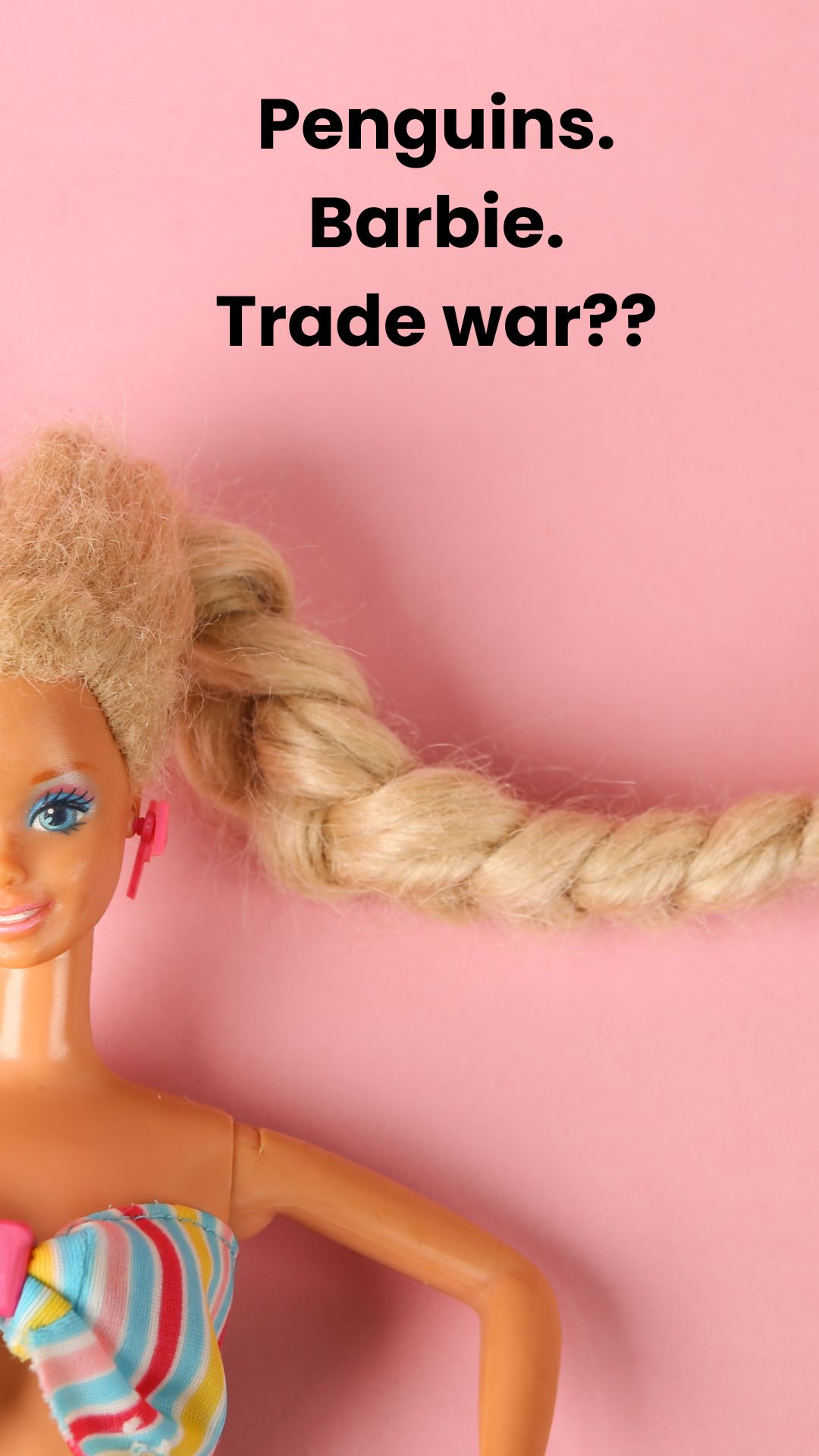From Penguins to Plastic Icons: Why is Barbie and a Penguin Island in a Trade War?

First, it was penguins. Seriously.
In April 2025, the Trump administration imposed a 10% tariff on imports from Heard and McDonald Islands—two remote sub-Antarctic territories best known for being cold, wild, and completely uninhabited. No ports. No exports. Just penguins and seals living their best lives.
The official reasoning? To close obscure trade loopholes that could, in theory, let countries like China sneak goods into the U.S. by routing them through overlooked territories. Never mind the fact that these islands don’t do trade. At all. Ever.
So: penguins = economic threat?
Fast-forward, and the target has shifted—from empty islands to Barbie.
Mattel, the U.S. toy giant behind the iconic doll, is caught in the fallout of renewed Trump-era tariffs on Chinese imports. The company manufactures heavily in China and announced that it expects to take a $270 million hit. Naturally, they’re planning to raise prices on toys to make up the difference. Because nothing says “economic policy” like making Barbies more expensive.
But here's where it gets odd: Mattel’s not just some random manufacturing casualty. After the 2023 Barbie movie reignited global love for the doll, Mattel became a central player in one of the decade’s biggest pop culture moments. Through a licensing and profit-sharing deal with Warner Bros., they pocketed 5% of the film’s $1.4 billion global box office. Add in merchandising, brand collaborations, and even a Barbie Dreamhouse Airbnb—and they pulled in an extra $125 million in revenue just from the Barbie boom.
Now? They're basically being treated like a foreign nation.
We’ve gone from slapping tariffs on empty penguin islands to punishing a U.S. company riding high off a Hollywood hit.
The logic? Unclear.
The strategy? Muddled.
In the end, both penguins and Barbie found themselves dragged into a bizarre trade war.
At this rate, don’t be surprised if Legoland gets sanctioned next.